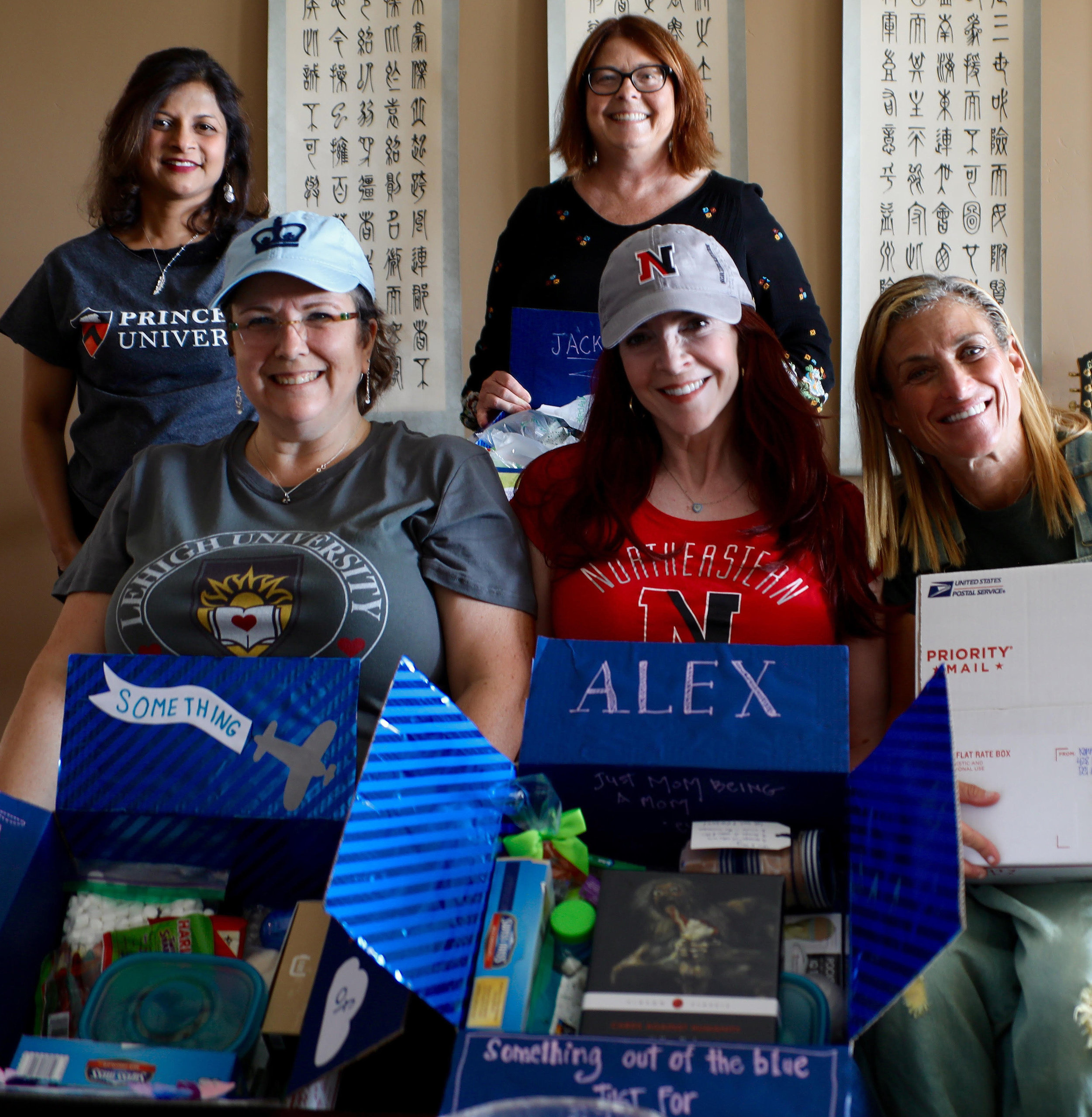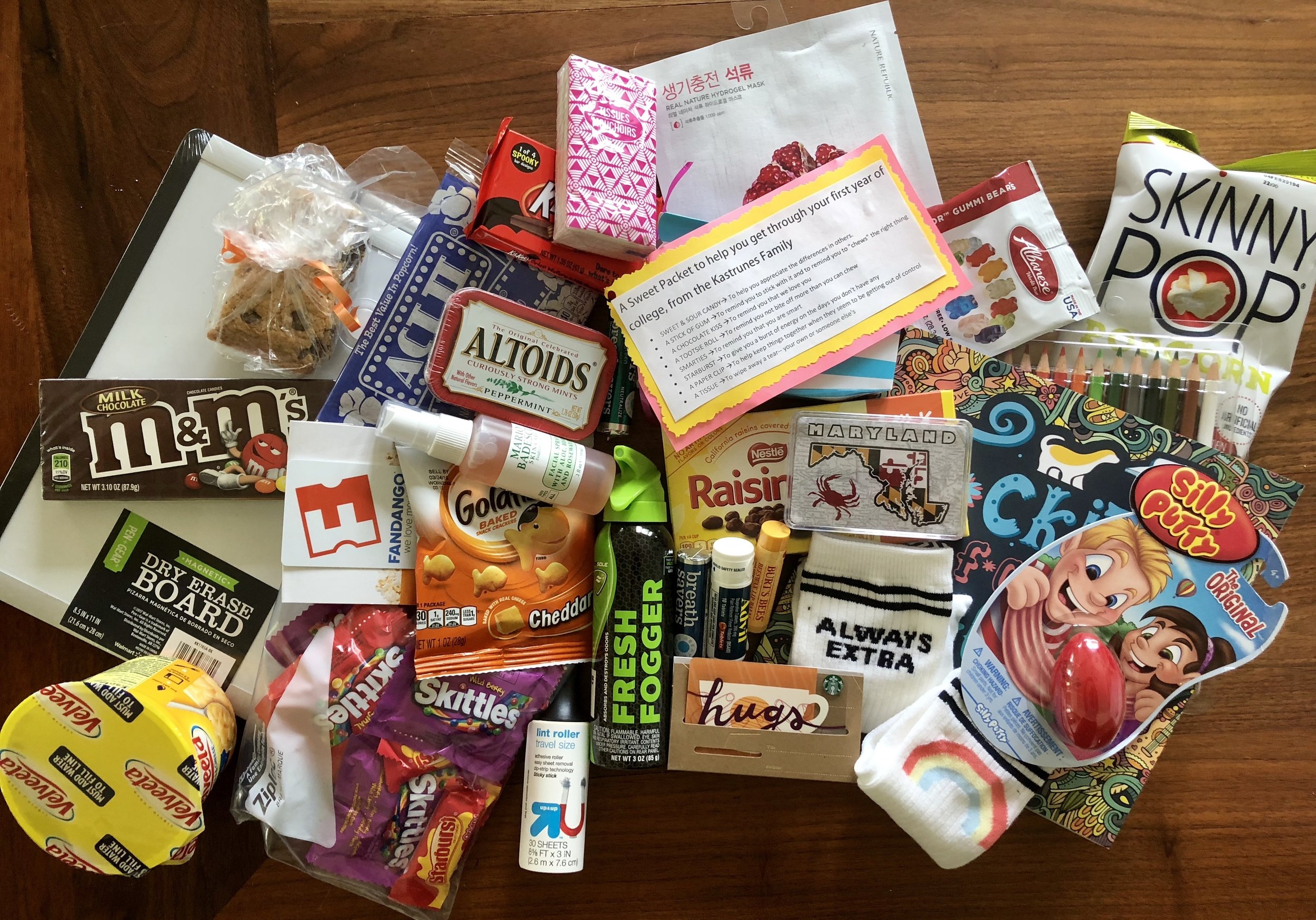a growing trend among those with an empty nest
By LISA A. FLAM, Associated Press
Eighteen years after Diana Sutera Mow gained an instant family with the arrival of her twins, her Southern California home “became an instant empty nest” when they flew across the country to begin college last year.
Gone were the everyday sounds of her children, Alex and Rachael, laughing, running around the house and telling her about their day. Gone too were the familiar voices of her son’s lacrosse teammates and her daughter’s friends.
“We went from not just having our children but several others in our home at any given time to just my husband and I and the dogs,” said Mow, of Poway, California. “The silence is deafening.”
To help fill the void and to stay in touch with fellow parents, Mow began participating in a growing trend among those with an empty or emptying nest: the college care package party.
At these parties, parents, usually mothers, share a glass of wine or a meal and then pack a box of goodies to send to their college students. The moms laugh, hug and bond as they swap updates about their children, support each other through new struggles, and sometimes shed a tear among friends who get it.
Mow, who hosted four parties during her kids’ freshman year, opened her home for her fifth on Aug. 31, at the start of her twins’ sophomore year.
“It gives us an excuse to get together and be a support system, and see that we’re not alone in this journey and everything is normal,” Mow said.
The parties work like this: If the RSVPs show that 12 boxes will be made, each parent brings 12 of an identical item, one for each box. Parties often follow a festive theme, like Halloween or Valentine’s Day, or boxes can be filled with snacks and stress balls for finals. Some groups of moms wear college T-shirts for extra fun.
Crafty moms decorate the box flaps with colored or holiday-themed paper or add tissue paper in school colors. Moms often write notes of support to the students, or the whole group may sign a card for each box, so students know who was thinking of them back home.
The parties are spreading “like wildfire,” says Lisa Heffernan, co-founder of the website Grown and Flown , whose Facebook group has many posts on the parties.
“Every time we put one of these pictures up in the group, it spawns a whole bunch of parties,” she said. “Just because our kids got older, that doesn’t mean parents don’t need a community and the village.”
Heffernan says the people invited to the parties aren’t necessarily your closest friends but the moms you enjoyed socializing with through your children’s activities. Through the parties, the moms get to maintain long-standing connections with other parents while continuing to support the children they have adored and cheered on for years.
“We’ve stood on the sidelines of their lives,” she said. “This is a way of us continuing to do that.”
Of course, a mom could simply make a single care package on her own, but the parties are more fun, Heffernan says: “It ends up being like a girls night out.”
Mia Walsh dropped off her older daughter, Kate, at Bowdoin College in Maine in August, and held her first care package party on Sept. 6, welcoming 15 moms of first-year college students into her Baltimore home. They had appetizers and drinks and talked for 90 minutes before starting the “conga line” of filling the boxes with adult coloring books, dry erase boards, candy and more.
“It was wonderful,” said Walsh, who has another daughter still at home. “We all had stories to tell even though the kids had been in school for two weeks.”
There were a few tears, but the moms doing well offered guidance to those struggling. “It was really, really helpful to the moms that were having the most difficult time,” she said.
Mow, whose son is at Lehigh University and whose daughter attends Columbia, says the women at her gatherings have grown closer through the relaxed, personal setting at home.
The best thing about the parties, Heffernan says, is that parents stay connected to people they care about.
“We call it the empty nest,” she said. “That’s such a depressing, vacant-sounding word. This kind of takes away the empty part. This is one way that allows us to stay meaningfully connected to our community, and it’s just great fun.”


